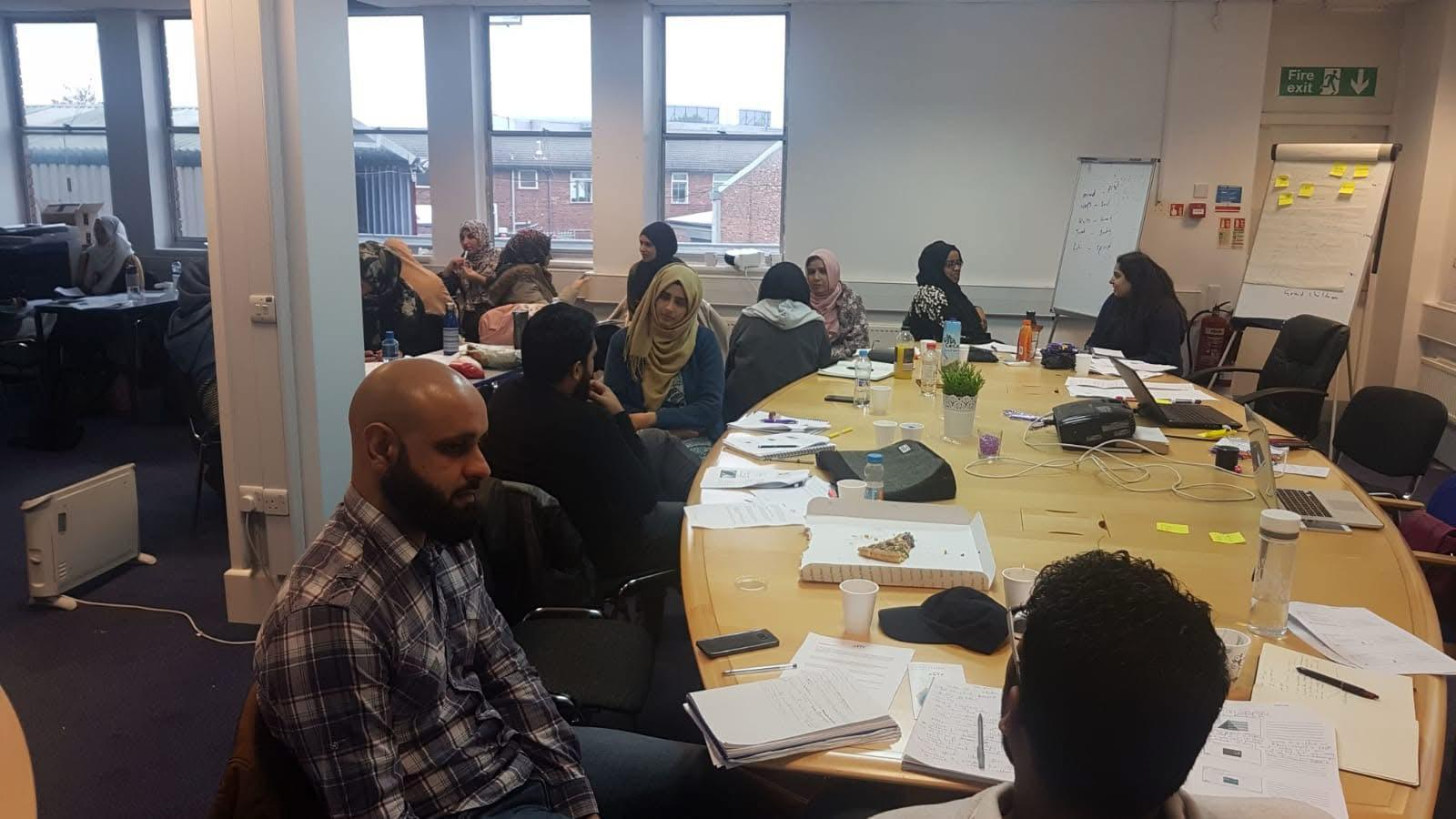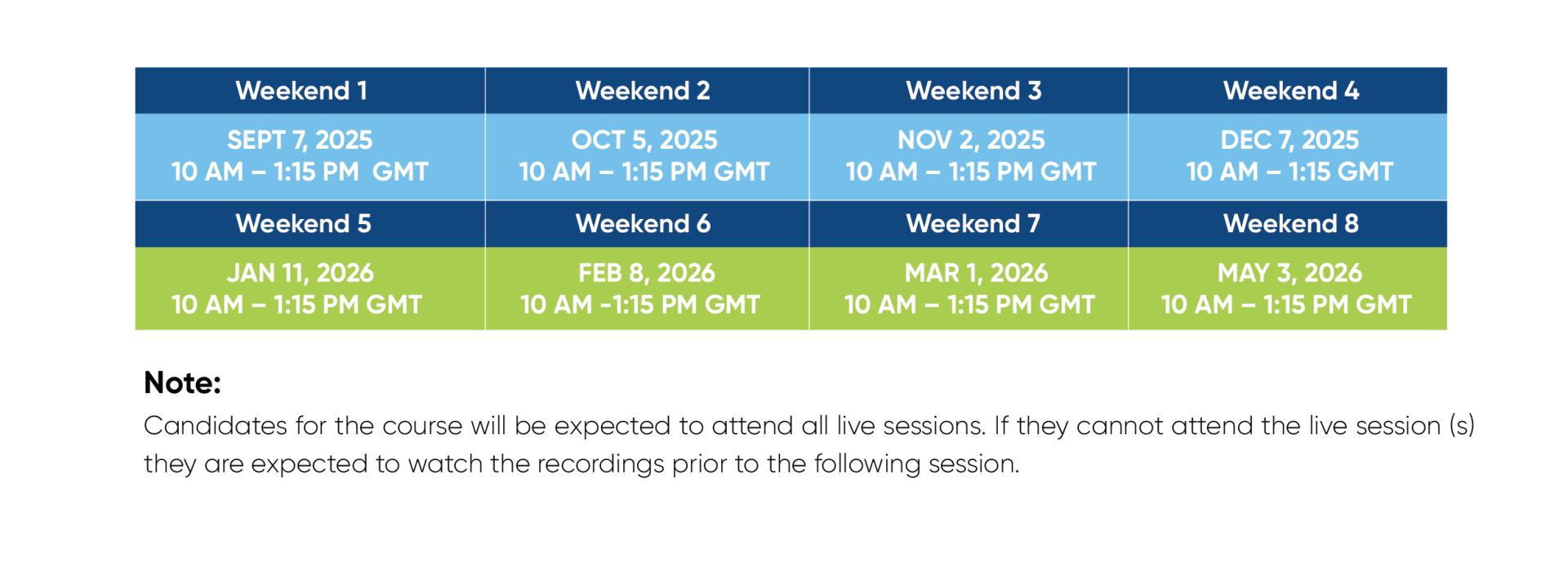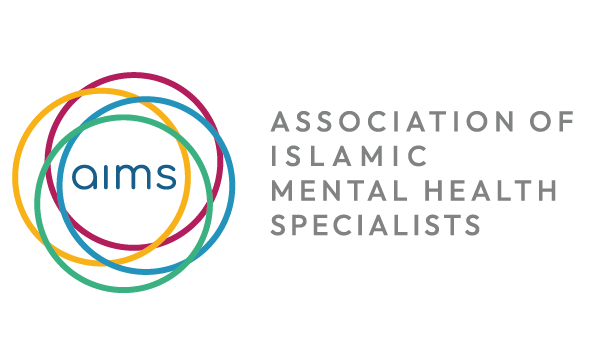THE ISLAMIC PSYCHOLOGY & COUNSELLING PROGORAMME - MASTER’S LEVEL (M.IPC)
Programme Introduction
Key Benefits:
Practical approach
Equip yourselves with the skills and knowledge to become authentic Islamic-scientific psychologists, counsellors, psychotherapists, psychiatrists, social workers, or authentic users of Islamic-scientific psychology in various areas of work.
Trust
Gain the community's trust and reliance through recognized qualifications on Islamic-scientific psychology and counselling.
Bridging the Gap
Bridge the gap between conventional and Islamic practices in psychology, counselling, and mental health.
Programme Features
-
Online, on-demand course, with Q&A via chat with some of the leading experts on Islamic psychology and counselling
-
Seven unique free books peer-reviewed exclusively written and compiled for the programme
-
Access from anywhere in the world at any time
-
Additional reading materials and resources
-
Practical demonstrations on how to apply Islamic principles
-
Tips on how to improve Islamic psychology and counselling theory and practice
-
Islamic counselling supervision
-
World-class authentic Islamic qualifications
Islamic Qualifications
Ijazah or Ijaza: Authorisation in Islamic Tradition Ijazah or Ijaza is an Arabic word that means “permission,” “authorization,” or “license.” Technically, in Islam, Ijazah is a license authorizing its holder to transmit sacred knowledge, issued by someone already possessing such authority. In other words, Ijazah is a certificate used primarily by Muslims to indicate that one has been authorized by a higher authority, who already holds Ijazah, to practice the given subject.
There is a
difference between Shahada and Ijazah. Shahada means that the teacher authorises
the student to teach the subject. In contrast, Ijazah, in the context of the
Master's level (M.IPC), means that the student has completed a certain area of
study and is able to practice it. It should be noted that those who are awarded
the advanced and Master's level Ijazah would already possess a conventional (or
PCSP) qualification.
The focus of the Islamic Psychology & Counselling Programme (M.IPC) is to provide an Islamic traditional method of learning and dissemination. The programme aims to articulate the Islamic foundations without any external restrictions and constraints. This programme has been developed by experts with both secular and Islamic, academic, and traditional grounding in psychology and counselling.
The M.IPC & LIPC
Traditionally, Islamic knowledge was handed down from
teacher to student in an unbroken chain going back to the Prophet ﷺ. This isnad
system is unparalleled in the Islamic tradition, ensuring the authentic
transmission of knowledge. Muslim societies eventually developed universities;
indeed, the first known universities, as we understand them now, were
established by Muslims.
However, with the rise of secular globalization, even
universities in Muslim countries rapidly changed the ways in which they provide
learning. Despite this shift, there have been notable exceptions in Islamic
history, such as Al Azhar University, which has maintained its traditional
methods.
The institutionalisation of psychology and counselling in the West developed distinct approaches that often contrast with religious teachings. The imposition of secular frameworks in these fields has posed challenges for integrating traditional Islamic perspectives on mental health and counselling.
In many societies where Muslims reside, there are numerous limitations and restrictions on practicing authentic Islamic psychology and counselling. Muslims often need to operate within a purely secular system, which creates problems and limits the development of approaches grounded in Islamic tradition.
There was an attempt to get the programme accredited by universities, and many showed keen interest. However, we did not pursue accreditation for two main reasons: 1) the high fees charged by universities would hamper eager students' participation, and 2) accreditation would impose restrictions on what can be taught and said.
We believe we have developed a unique world-class course that does not compromise on Islamic teachings nor on high academic standards. The M.IPC & LIPC operates at an informed level, meaning graduates will be able to practice Islamic psychology and counselling while remaining faithful to their faith and Islamic teachings. However, it does not necessarily equip graduates to undertake the task of legal reasoning (Ijtihad). It is independently accredited by The Association of Islamic Mental Health Specialists (AIMS).

Three levels of expertise in this programme
Islamically Informed
Level (cert) – completed 8 modules, 2,000-3,000-word essay.
Islamically
Integrated LIPC Level (Advanced Level) - completed 8 modules, 2,000-3,000-word
essay, video-recorded role-play, and 50 -hours online Islamic counselling
supervision and clinical work.
Islamic Psychology
& Counselling LIPC level (Master Level) - completed 8 modules, 2,000-3,000-word
essay, video-recorded role-play, and 50-hours online Islamic counselling
supervision, and clinical work.
Note: LIPC = Licensed Islamic Professional Counsellor
Month 1: An Introduction to Islamic-Scientific Psychology
Aims/Objectives
1. Compare and contrast various approaches to Islamisation of psychology
2.Compare and contrast various definitions of psychology
3. Evaluate various issues and debates in secular psychology from Islamic-scientific perspective
Coverage (3-5 hours
for each on demand learning) and 5 hours per module live session (each month)
2.Definitions of Islamic psychology and Islamic-scientific psychology
3. Issues and debates in psychology from Islamic-scientific perspective e.g. nature vs nurture, consciousness vs unconsciousness, observable behaviours vs internal mental processes, free-will vs determinism, and universalism vs uniqueness

1. Describe briefly the traditional methodology of usul fiqh, `ulum Qur’an and `ulum Hadith
2. Evaluate Western philosophy of research and various psychological research methods from Islamic-scientific perspective
3. Apply biopsychosocial-spiritual models in explaining human phenomena
Month 2: An Introduction to Psychological Perspectives I
(Psychodynamic Perspective, and Behavioural Perspective) with Islamic-scientific Perspective
Evaluation of Psychodynamic perspective from
Islamic-scientific point of view.
1. Describe
Islamic-scientific perspective on the influence of unconscious factors to human
behaviours.
2.Evaluate
psychodynamic theories from Freudian psychoanalysis to neo-Freudian theories
from Islamic-scientific perspective.
3. Apply psychodynamic models to counselling, psychotherapies and various psychology sub-disciplines form Islamic-scientific perspective.
4. Integrate Islamic-scientific psychodynamic model to the broader biopsychosocial-spiritual model
Evaluation of behaviourism from Islamic-scientific point of view.
1. Describe Islamic-scientific perspective on the influence of environmental factors to human behaviours
2. Evaluate behaviourism from Islamic-scientific perspective
3. Apply behaviourism to counselling, psychotherapies, and various psychology sub-disciplines from Islamic-scientific perspective.
4. Integrate Islamic-scientific behavioural model to the broader biopsychosocial-spiritual model
2. Historical context Freudian psychoanalysis and later psychodynamic, with addition from Islamic psychological history.
3. Basic concepts of Freudian psychoanalysis and later psychodynamic, plus Islamic-scientific perspective.
4. Psychodynamic model of counselling and psychotherapy, plus Islamic-scientific perspective
5. Psychodynamic model in other areas of psychology, plus Islamic-scientific perspective
6. How does Islamic-scientific psychodynamic model fit the broader biopsychosocial-spiritual model.
2. Historical context of early behaviourism and later behaviourism, with addition from Islamic psychological history.
3. Basic concepts of behaviourism, plus Islamic-scientific perspective
4. Behavioural model of counselling and psychotherapy, plus Islamic-scientific perspective
5. Behavioural model in other areas of psychology, plus Islamic-scientific perspective
6. How does Islamic-scientific behavioural model fit the broader biopsychosocial-spiritual model.
Month 3: An Introduction to Psychological Perspectives II
(Humanistic-Existentialist Perspective, and Cognitive Perspective) with Islamic-scientific Perspective
Evaluation of Humanistic-Existentialist perspective from Islamic-scientific point of view.
1. Describe Islamic-scientific perspective on the influence of self-factor to human behaviours
2. Evaluate humanistic-existentialist perspective from Islamic-scientific perspective
3. Apply humanistic-existentialist perspective to counselling, psychotherapies, and various psychology sub-disciplines from Islamic-scientific perspective
4. Integrate Islamic-scientific behavioural model to the broader biopsychosocial-spiritual model
Evaluation of Cognitive perspective from Islamic-scientific point of view
1. Describe Islamic-scientific perspective on the influence of cognitive factor to human behaviours
2. Evaluate cognitive perspective from Islamic-scientific perspective
3. Apply cognitive perspective to counselling, psychotherapies and various psychology sub-disciplines from Islamic-scientific perspective
4. Integrate Islamic-scientific cognitive model to the broader biopsychosocial-spiritual model
Note: Briefing on assessments.
1. Biography of Carl Rogers and Victor Frankl
2. Historical context of Humanistic-Existentialist perspective, with addition from Islamic psychological history.
3. Basic concepts of humanistic-existential perspective, plus Islamic-scientific perspective
4. Humanistic-existentialist model of counselling and psychotherapy, plus Islamic-scientific perspective
5. Humanistic-existentialist model in other areas of psychology, plus Islamic-scientific perspective
6. How does Islamic-scientific humanistic-existential model fit the broader biopsychosocial-spiritual model.
1. Biography of Aaron Beck and Albert Ellis
2. Historical context of cognitive-behavioural and cognitive perspectives, with addition from Islamic psychological history.
3. Basic concepts of cognitive-behavioural and cognitive perspectives, plus Islamic-scientific perspective
4. Cognitive-behavioural and cognitive models of counselling and psychotherapy, plus Islamic-scientific perspective
5. Cognitive-behavioural and cognitive models in other areas of psychology, plus Islamic-scientific perspective
6. How does Islamic-scientific cognitive-behavioural and cognitive models fit the broader biopsychosocial-spiritual model.
Month 4: An Introduction Psychological Perspectives III
(Biological Perspective) and Islamic-Scientific Basic Psychology
Evaluation of Biological perspective from Islamic-scientific point of view
1. Describe Islamic-scientific perspective on the influence of biological factor to human behaviours
2. Evaluate biological perspective from Islamic-scientific perspective
3. Apply biological perspective to counselling, psychotherapies, and various psychology sub-disciplines from Islamic-scientific perspective
4. Integrate Islamic-scientific biological model to the broader biopsychosocial-spiritual model
Exposure to various basic psychology disciplines from Islamic-scientific perspective:
1. Describe the Islamic philosophy of learning cognition, development, motivation, emotion, and society.
2. Evaluate psychology of learning, cognitive psychology, developmental psychology, motivation and emotion, and social psychology from Islamic-scientific perspective.
3. Apply biopsychosocial-spiritual model to psychology of learning, cognitive psychology, developmental psychology, motivation and emotion, and social psychology
1. The biological bases of behaviours (genetic, neuronal, and hormonal activities).
2. Historical context of psychosurgery, drug therapy, and electro-convulsive therapy, with addition from Islamic psychological history.
3. Basic concepts of biological perspective, plus Islamic-scientific perspective
4. Biological model of counselling and psychotherapy, plus Islamic-scientific perspective
5. Biological model in other areas of psychology, plus Islamic-scientific perspective
6. How does Islamic-scientific cognitive-behavioural and cognitive models fit the broader biopsychosocial-spiritual model.
1. Psychology of learning: Islamic-scientific perspective
2. Cognitive psychology: Islamic-scientific perspective
3. Developmental psychology: Islamic-scientific perspective
4. Motivation and emotion: Islamic-scientific perspective
5. Social psychology: Islamic-scientific perspective
Month 5: An Introduction to Islamic-scientific Applied Psychology
Exposure to various basic psychology disciplines from Islamic-scientific perspective:
1. Describe the Islamic philosophy of education, health, and work.
2. Evaluate educational psychology, health psychology and work/organizational psychology from Islamic-scientific perspective
3. Apply biopsychosocial-spiritual model to educational psychology, health psychology and work/organizational psychology
Exposure to various basic psychology disciplines from Islamic-scientific perspective:
1. Describe the Islamic philosophy of crime, sport, and environment.
2. Evaluate forensic psychology, sport psychology and environmental psychology from Islamic-scientific perspective
3. Apply biopsychosocial-spiritual model to forensic psychology, sport psychology and environmental psychology
1. Educational Psychology: Islamic-scientific perspective
2. Health Psychology: Islamic-scientific perspective
3. Work/Organisational Psychology: Islamic-scientific perspective
1. Forensic Psychology: Islamic-scientific perspective
2. Sport Psychology: Islamic-scientific perspective
3. Environmental Psychology: Islamic-scientific perspective
Month 6: An Introduction to Practical integrated Islamic Psychology and Counselling Framework
1. Evaluate various perspective about soul, human being, mental illness, and psychotherapy from Islamic-scientific perspective.
2. Analysis the development of human psychology throughout the life-span and various factors that affecting it.
3. Apply Islamic-scientific psychology to improve the behaviours and morals of human being.
Applications of biopsychosocial-spiritual perspective to integrating the Islamic applied Psychology practical Counselling model II
1. Development of theories and models
2. Principles of integrating intervention, techniques, and approaches from the Islamic-scientific perspective in Counselling.
3. Major therapeutic techniques and interventions and applications using Islamic-scientific approaches
4. Case studies
1. Muslim presentations of Mental Illness.
2. Human from the Islamic and conventional perspectives
3. Islamically-sensitive/informed psychotherapy, Islamically-integrated psychotherapy and Islamic psychotherapy
4. Advantages and disadvantages of western models for Muslim clients
5. Current models of Islamic psychotherapy
6. The metaphysics of the soul in relation to the nature of God
7. Human development: from pre-birth to old age
8. Human development: changes and problems,
9. Factors influencing physical, cognitive, social and personality development.
10. Approaches and perspectives of human development and the common processes that every individual experiences
11. Application: Applying the concepts and theories learnt to explain own development.
12. Human nature and development to the western perspective of developmental psychology
Month 7: An Introduction to the Islamic Human Psychological Mainframe
1. Explain the various human dimensions in the Qur’an and Sunnah
2. Explain the key factors in developing an authentic Islamic psychological and counselling framework of theory and application
3. Explain the problems of pathologising normal human behaviour from Islamic-scientific perspective
1. Explain mental illness in psychology and in Islamic context
2. Explain the concepts of insanity and legal capacity
3. Discuss case studies
4. Explain legal impediments in Islamic jurisprudence
5. Explain the impediments of illness in Islamic jurisprudence
6. Analyse various contemporary classifications of mental disorders
7. Analyse current fatwas in the light of scientific evidence and Islamic jurisprudence
1. Islamic human psychological mainframe
2. Qur’anic conceptualisations of the human soul, self and human nature
3. Psychological problems from Islamic-scientific perspective
1. Mental illness and mental disorder within the context of Islamic jurisprudence.
2. Definitions and interpretations of mental illness from Islamic perspective.
3. Mental disorders as diseases from Islamic perspective.
4. Dualistic theories and their historical significance from Islamic perspective.
5. Mind-body problem, mental illness and its implications for fatwa issuance.
6. Classical Islamic concepts of insanity, its causes, and manifestations
7. Cases of insanity in Islamic legal-historical contexts
8. Classical concepts and contemporary psychological definitions of insanity
Month 8: An Introduction to Islamic Psychology & Counselling from the Qur’an, Hadith and Early Muslim Scholars
Exposure to selected Qur’anic verses and Ahadith al-Nabawiyah related to counselling and psychology:
8. Integrate several tafsir of Qur’anic verses with scientific research to build Islamic-scientific theories and practices in counselling and psychology
9. Integrate several syarah of ahadith al-nabawiyah with scientific research to build Islamic-scientific theories and practices in counselling and psychology
Exposure to selected early Muslim scholars’ contribution to psychology.
1. Describe early Muslim scholars’ contribution to psychology
2. Integrate early Muslim scholars’ contribution with contemporary scientific psychology
1. Qur’anic verses and ahadith related to basic psychology
2. Qur’anic verses and ahadith related to applied psychology
3. Qur’anic verses and ahadith related to counselling and psychotherapy
1. Al-Kindi
2. Abu Bakr Al-Razi
3. Al-Farabi
4. Ibn Miskawayh
5. Ikhwan al-Safa
6. Ibn Sina
7. Ibn Hazm
8. Al-Ghazali
9. Ibn Bajjah
10. Ibn Tufayl
11. Ibn Rushd
12. Fakhr al-Din al-Razi
13. Ibn Taimiyyah
14. Ibn Qayyim
15. Al-Balkhi
The Islamic Psychology & Counselling Master’s Level (M.IPC) Programme
Key Features:
-
Comprehensive understanding of both Western psychology and the Islamic tradition.
-
Flexible on-demand learning with studio-recorded classes and tailored books.
-
Monthly live sessions to reinforce and expand on the recorded material.
-
A qualification that prepares individuals to become authentic Islamic therapists trusted by their communities.

If you feel you may not be able to partake in such topics and discussions then consult your tutor or contact the administrator to notify him/her prior to joining the course. This course is a training programme to teach people how to become Islamic counsellors and is therefore not intended to be a counselling session for students. If students require counselling, then the institute can sign post students to relevant parties/bodies. The course is strictly adherent to the format of a normal academic Islamic course.
Islamic Accreditor


